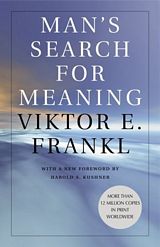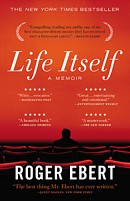Sam Walton (1918–1992) experienced failures and setbacks. And, like all successful people, the iconic founder of Walmart and Sam’s Club prided himself on learning from those experiences.
Walton’s Initial Success … and Then, in a Heartbeat, Failure
By 1950, a 32-year-old Sam Walton had established himself as a successful retailer in Newport, Arkansas. In 1945, Walton had purchased a Ben Franklin variety store and set up a five-year personal goal to make it the most profitable variety store in the region. By 1950, Walton had a record $250,000 in sales and $30,000 to $40,000 in profit (some $2.5 million in sales and $300,000 to $400,000 in profits in today’s dollars.) His success had attracted a lot of attention.
Not only that, the young Walton family—Sam, his wife Helen, and four young children—had firmly established itself in Newport. Sam and Helen were very active in the community and had taken up prominent civic and church duties.
An innocuous legal oversight cost him this success. When he had signed the lease on the property rental for his Ben Franklin variety store in 1945, thanks to inexperience and excitement at becoming a merchant, Walton had agreed to give back the landlord 5% of sales. He later discovered this was the highest any retailer had paid for rental.
More significantly, Walton had also neglected to add a clause in his lease that would give him the option to renew the lease after five years. Therefore, in 1950, when the lease on Walton’s Ben Franklin store expired, his sneaky landlord knew there was nowhere else in town for Walton to relocate his store. The landlord refused to renew Walton’s lease at any price! The landlord bought Walton’s well-established store along with its fixtures and inventory and transferred the store to his son. Walton was devastated; he had no choice but to give up his successful store. In his best-selling autobiography Made in America, Walton recalled this as the lowest point of his business life:
I felt sick to my stomach. I couldn’t believe it was happening to me. It really was like a nightmare. I had built the best variety store in the whole region and worked hard in the community, done everything right, and now I was being kicked out of town. It didn’t seem fair. I blamed myself for ever getting suckered into such an awful lease, and I was furious at the landlord. Helen, just settling in with a brand-new family of four, was heartsick at the prospect of leaving Newport. But that’s what we were going to do.
Sam Walton Was Not One to Dwell on Disasters
All the hard work he had put in to build a successful store and the earning power he had established over five years had become worthless because of an innocuous mistake. Nevertheless, Walton didn’t let this disaster get him down.
I’ve never been one to dwell on reverses, and I didn’t do so then. It’s just a corny saying that you can make a positive out of most any negative if you work at it hard enough. I’ve always thought of problems as challenges, and this one wasn’t any different. I don’t know if that experience changed me or not. I know I read my leases a lot more carefully after that, and may be I because a little wary of just how tough the world can be. Also, it may have been about then that I began encouraging our eldest boy—six-year-old Bob—to become a lawyer. But I didn’t dwell on my disappointment. The challenge at hand was simple enough to figure out. I had to pick myself up and get on with it, do it all over again, only even better this time.
This Newport experience turned out to be a blessing in disguise for Walton. His family relocated to the relatively obscure Bentonville, Arkansas, for a brand-new start. Walton started over and established himself as a retailer again—only in even bigger and better ways. In 1962, Walton decided that the future of retailing lay in discounting. His strategy of buying low, selling at a discount, and making up for low margins by moving vast amounts of inventory, made Walmart the most successful retailer ever. From 1985 until his death in 1992, he was the richest man in the world.
Successful People Learn from Failure and Get On
.jpg) Walton’s was a typical entrepreneurial response to failure—successful people take risks, fail sometimes, but pick themselves up, ask what they can learn from the experience, and try again, even harder the next time.
Walton’s was a typical entrepreneurial response to failure—successful people take risks, fail sometimes, but pick themselves up, ask what they can learn from the experience, and try again, even harder the next time.
On a related note, Bill Gates, the most successful entrepreneur of his generation, once said, “Success is a lousy teacher. It seduces smart people into thinking they can’t lose.”
Complement this lesson on failure with J.K. Rowling’s reflections on the benefits of failure in her famous 2008 commencement address at Harvard: “Failure meant a stripping away of the inessential. I stopped pretending to myself that I was anything other than what I was, and began to direct all my energy into finishing the only work that mattered to me…The knowledge that you have emerged wiser and stronger from setbacks means that you are, ever after, secure in your ability to survive.”

.jpg)
.jpg)

.jpg)
.jpg)
.jpg)
.jpg)

.jpg)

